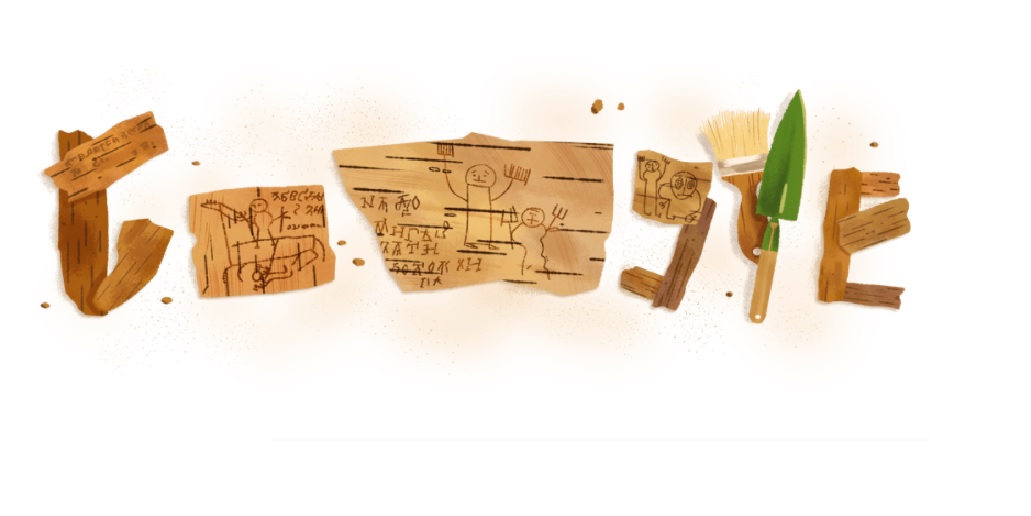Birch Bark Manuscript: Google Doodle celebrates 70th Anniversary of Russian linguistics discovery

- Country:
- Russian Federation
Today Google celebrates 70th Anniversary of the Birch Bark Manuscript. On July 26, 1951, during excavations in Novgorod, a Soviet expedition led by Artemiy Artsikhovsky found the first Russian birch bark writing in a layer dated to c. 1400.
Since then, more than 1,000 similar documents were discovered in Staraya Russa, Smolensk, Torzhok, Pskov, Tver, Moscow, Ryazan, and Vologda, although Novgorod remains by far the most prolific source of them. In Ukraine, birch bark documents were found in Zvenyhorod, Volynia. In Belarus, several documents were unearthed in Vitebsk and Mstislavl.
Dated to the 14th century, the manuscript was found in a district close to Red Square by a team of the Russian Academy of Sciences who dug 13 feet down. They retrieved hundreds of objects that provide new information about life in Moscow in the Middle Ages.
Found in Veliky Novgorod—one of Russia’s oldest cities approximately 120 miles from St. Petersburg—the birch bark manuscript excavated in 1951 contains a brief list of working assignments addressed to a local laborer. This breakthrough finding proved to be just the tip of the iceberg, as over 1,000 manuscripts have been discovered across Russia since—some dating back to the 11th century!
Before the 1951 excavation, historians mostly relied on ancient Russian archives to color in the grey areas of medieval history, but these records did not illustrate the minutiae of everyday life. Birch bark writings filled these gaps with incredible detail, chronicling accounts from children to high-ranking officials. Thanks to these artifacts, scholars now believe ancient Russians had a much higher rate of literacy than previously thought and have discovered a new Old Russian dialect.
Today, experts estimate tens of thousands of birch bark writings remain under Russian soil.
Also Read: Francisco Toledo: Google Doodle on Mexican artist & activist’s 81st birthday









